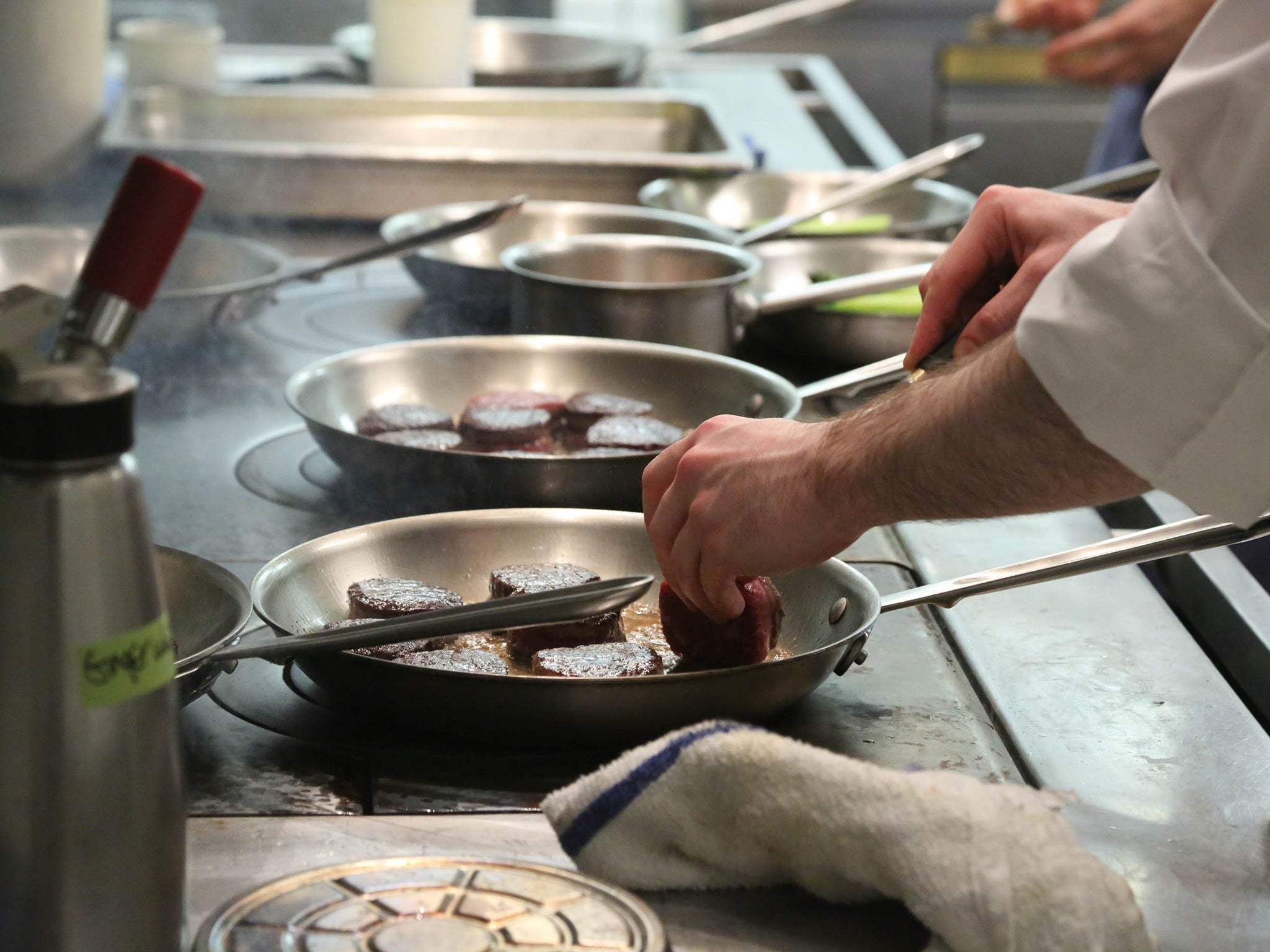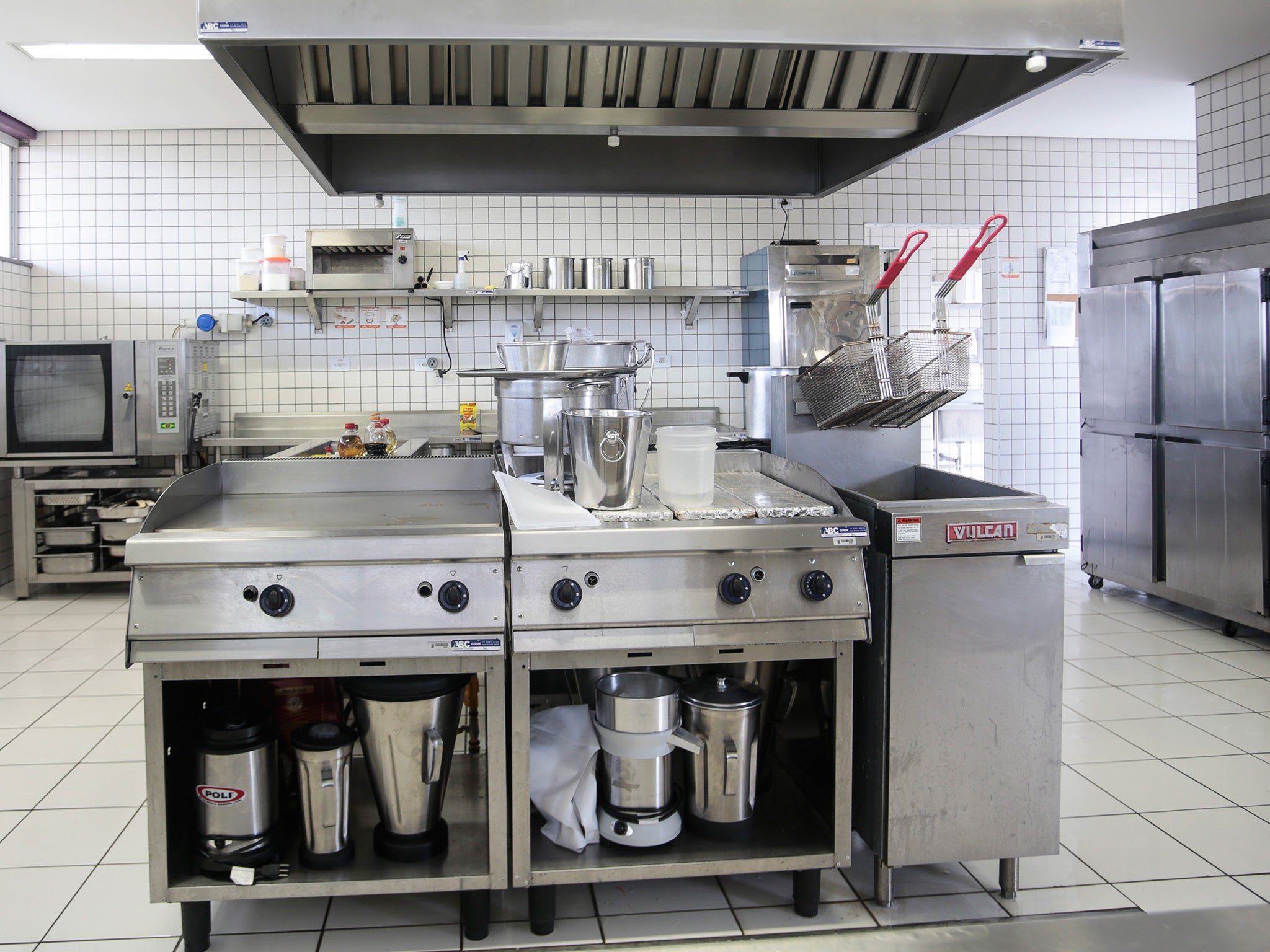Britain's kitchens so filthy that they present a health risk, says new research
The research adds that household chefs commonly forget to wash their hands and drip germ-laden meat juices in places they should never be

Your support helps us to tell the story
From reproductive rights to climate change to Big Tech, The Independent is on the ground when the story is developing. Whether it's investigating the financials of Elon Musk's pro-Trump PAC or producing our latest documentary, 'The A Word', which shines a light on the American women fighting for reproductive rights, we know how important it is to parse out the facts from the messaging.
At such a critical moment in US history, we need reporters on the ground. Your donation allows us to keep sending journalists to speak to both sides of the story.
The Independent is trusted by Americans across the entire political spectrum. And unlike many other quality news outlets, we choose not to lock Americans out of our reporting and analysis with paywalls. We believe quality journalism should be available to everyone, paid for by those who can afford it.
Your support makes all the difference.Home cooking may be as popular as ever following the success of celebrity chefs on television. But amateur cooks appear to be less keen on kitchen hygiene.
New research has found that not only are Britain’s kitchens so filthy that they present a health risk, but household chefs are woefully ignorant about food preparation hygiene.
They commonly forget to wash their hands, use dirty tea towels and drip germ-laden meat juices in places they should never be, a survey by the Leatherhead Food Research consultancy has found.
As a result cooks and their dinner party guests are being exposed to a greater risk of food poisoning than they need to be. While this may in some cases be excusable because parents are busy juggling work and children, more often than not it’s because people don’t know the basics, such as that they shouldn’t wash or handle raw meat.
The research – said to be the most comprehensive survey of British kitchens ever undertaken – found that 40 per cent of kitchens contain filthy dish cloths or tea towels; a quarter of people don’t automatically wash their hands before preparing food, and only half wash them immediately after cutting raw meat, while a third admit to wiping their dirty hands around the kitchen before heading for the tap.
“I’m sure we’ve all got friends where you go round for dinner and you look at their tea towel and think: ‘My God, that’s disgusting, why don’t you get a new one?’ We don’t have a tea towel police, but we’re raising the issue,” said Professor Tony Hines, of Leatherhead Food Research
In other cases, many people are unaware of the danger that their lack of basic hygiene poses to their health. Handling raw meat is always a no-no, for example, because it helps to spread germs around – which can cause food poisoning.
“I don’t think people realise that although your mother and your grandmother washed your turkey under the kitchen tap on Christmas morning before they put it in the oven, you shouldn’t do that – the science and evidence has moved on,” said Professor Hines.
“It’s not a problem until you get food poisoning. It’s easy to say: ‘It was the chicken, it wasn’t cooked properly’ – well, the chicken was perfectly cooked. It was because you handled it and cut it up. And then you opened the fridge door and didn’t wipe the handle. And your kids came along and opened the fridge just after you and they got chicken juice on their fingers – and then they licked them and they became ill,” he said.

His colleague Nicole Patterson-Lett added: “If you then wipe your hands over the tea towel, having touched the chicken, and then a bit later you’re doing the washing-up with the same tea towel, then again you’re spreading the bacteria to the plates further. It just spreads. You’re not aware of it, you can’t see it.”
Two-thirds of consumers remove raw meat from the packet by hand – you’re meant to plunge a fork or other utensil into it or else tip it onto a chopping board – while three-quarters hold the meat while cutting it into pieces, rather than holding it in place with cutlery. Half of consumers are unaware that washing meat is bad because it splashes germs around the kitchen.
Only a quarter of those surveyed use separate chopping boards for meat, fish and vegetables, and a third of people don’t keep raw meat at the bottom of the fridge – where it is meant to be to avoid dripping juices over everything else.
Ms Patterson-Lett presented the research findings, which came from a questionnaire completed by 1,551 people, at the Institute of Food Science and Technology Conference in London in the hope that they will generate a debate that will help to improve our kitchen habits.
Professor Hines said kitchen hygiene is a particular problem for older people: “We’ve got an ageing population of people who are more forgetful and people living much longer, and elderly people more susceptible to food poisoning because systems are weaker.
“They might have nursing carers but they can often only spend 10 minutes in the house. It would be great if friends and neighbours kept an eye on their neighbours and the relatives were all aware as well.”
Join our commenting forum
Join thought-provoking conversations, follow other Independent readers and see their replies
Comments